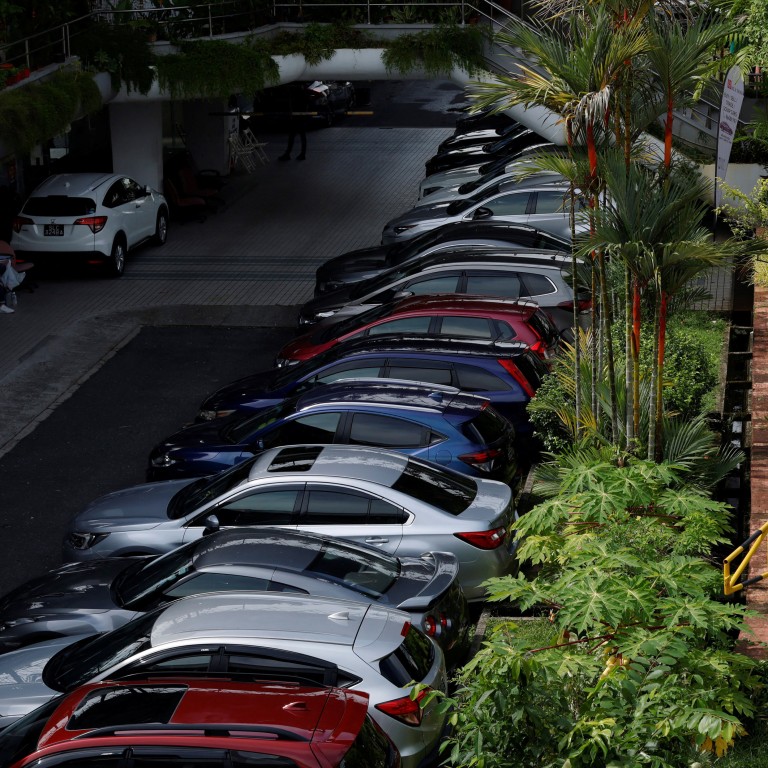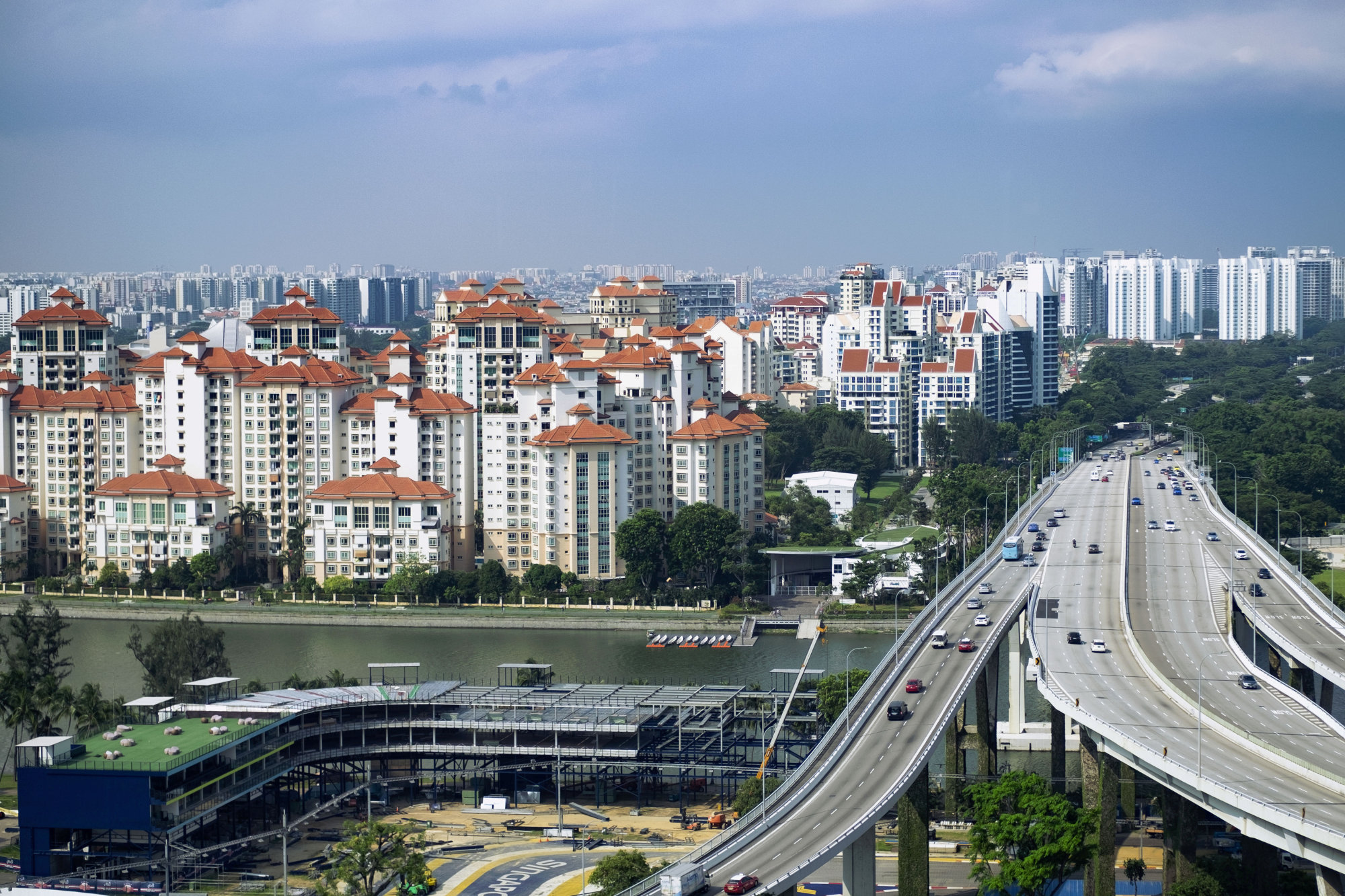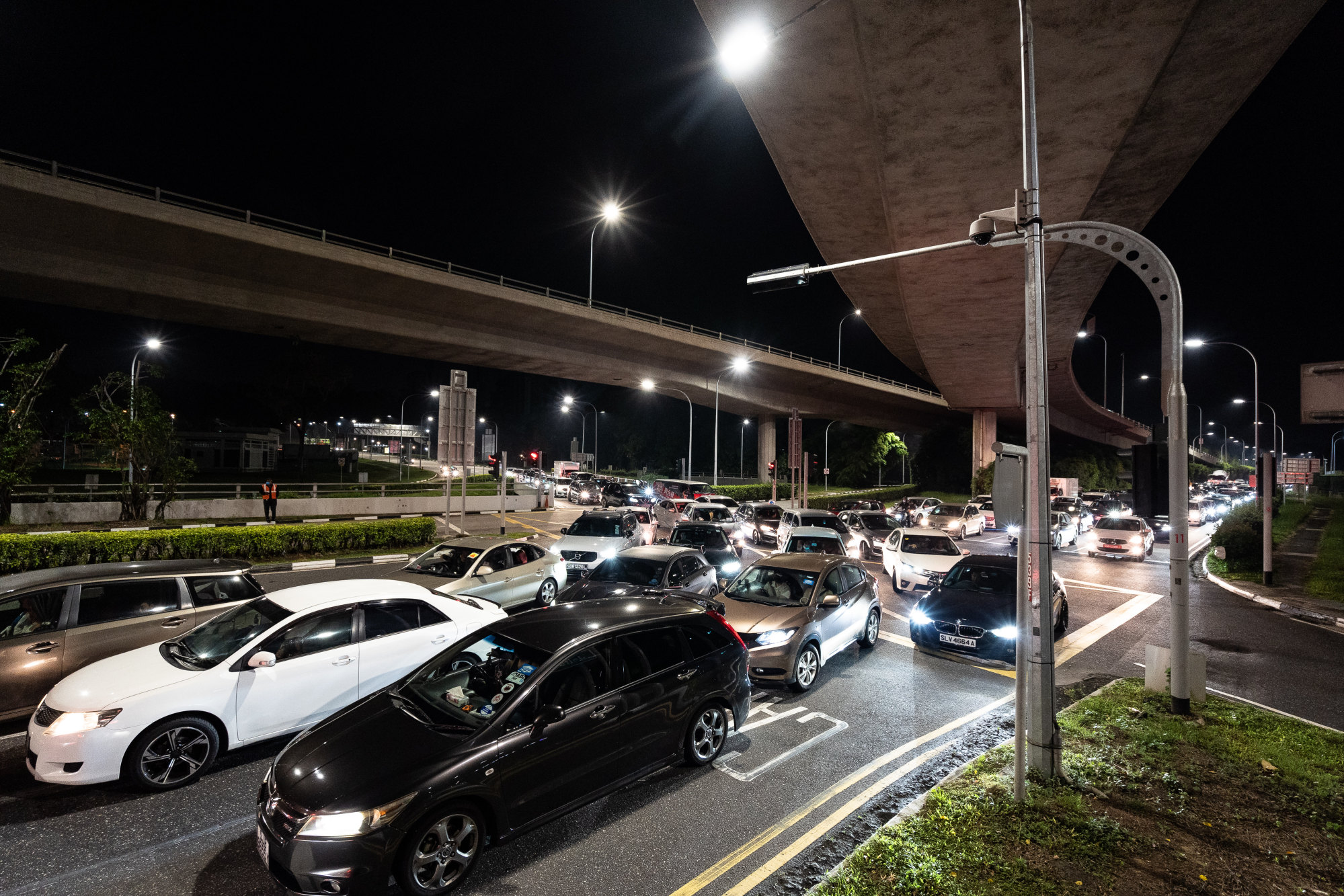
Can middle-class Singaporeans ‘afford it all’ as record high COE prices dash car ownership dreams?
- The price of a permit to own a car in Singapore – a certificate of entitlement (COE) – ranges from US$77,000 to US$102,000 and excludes the cost of a car
- High COE prices are puncturing hopes of car ownership for young, middle class families who still aspire to own a car, especially if they start a family
Middle-class Singaporeans seeking to own a car are likely to have to park their aspirations for at least the medium term, as the permit to own a vehicle surges past US$100,000 – more than double the nation’s median annual income.
That price, for a certificate of entitlement (COE) – a unique market mechanism to control the vehicle population in the land-scarce city state – now stands at S$140,000 (US$102,000) for larger cars.
The latest figure, released this week, continues a trend that has seen COE prices hovering over S$100,000 in the last 12 months.
Singapore to boost public housing affordability amid million-dollar prices
The permit to own a small car, which has a maximum of 1,600CC, now costs S$105,000, eclipsing the last record high of S$103,721 in April. The same certificate for a small car, valid for 10 years, cost S$37,000 in September 2020.
But the startling spike in Singapore’s car-permit prices since July 2020, and the unlikelihood of any cooling in the medium term, has been cause for disillusionment for aspiring car owners among the republic’s millennial and Gen Z population.

Zhao Sen, 26, a civil servant, said the high car premiums made it feel as though he would never be able to realise his childhood dream of owning a car.
“As someone that needs to think about settling down with my partner and buying a house, I want to be able to afford it all, but with cars being so expensive and a depreciating asset, I’m forced to prioritise buying a house,” he said.
Others have also abandoned the idea. “A car might be a necessity when kids are in the picture, but it’s so expensive to even get married now,” said 28-year-old Neo Rong Wei, an editor at a commodities publication.
Industry observers who spoke to This Week in Asia said they expect prices to remain elevated until the later half of the decade, as a result of factors including a low supply of certificates and higher spending power of the population.
The government releases a fixed number of COEs periodically, and this supply has not kept up with the growing demand for vehicles in Singapore
“The government releases a fixed number of COEs periodically, and this supply has not kept up with the growing demand for vehicles in Singapore,” said Jake Ler, chief marketing officer at online automotive platform Motorist Singapore.
With the population becoming more affluent, aspiring car owners can afford to bid more aggressively for a certificate, driving prices to record highs, he added.
Transport economist Walter Theseira said the high premiums needed to be understood in the broader context of low COE supply in the 10-year cycle, given that most car owners would keep their cars registered for close to the lifespan.
“Because of some historic supply issuance decisions, you have very few COEs being issued during some years and many times more COEs being issued in other years. This just happens to be a year when the number of COEs issued is extremely low,” he said.

He expects more COEs to be issued in the years approaching 2030, as it was for the same period in the previous decade.
“During the later part of the 2000s, there was a significant expansion of the private car fleet and because of this significant expansion – which was later cut back in the 2010s. This effectively created this bulge in COE supply in the later half of any decade,” he said.
Ler anticipates a “meaningful fall” in COE premiums from late 2024 onwards, in consideration of a “time lag” in the market prices to adjust changes in demand and supply.
“Nevertheless, this timeline is subject to various uncertainties, including government policies and economic conditions, which can influence the actual timing and magnitude of any decrease in COE premiums.”
Authorities, for their part, have indicated that the country’s zero-growth policy for the car population meant COE premiums were bound to trend upwards in the long term.
Township renewal plans in recent times have featured increased features for pedestrians and bicycles, as part of a push for a “car-lite” society.

